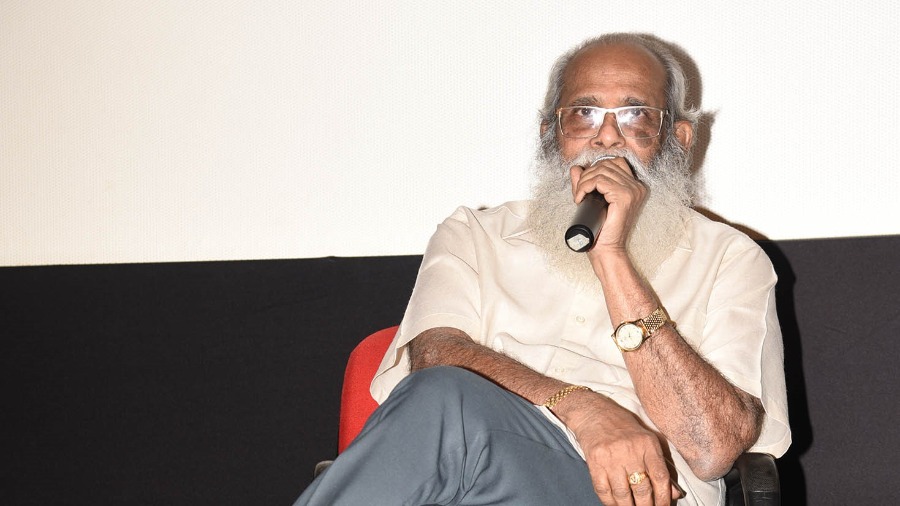As someone who didn't learn scripting, RRR screenwriter V Vijayendra Prasad says he looks up to former writer duo Salim-Javed and still watches their 1975 masterpiece Sholay to get over a creative block.
The 80-year-old Telugu cinema veteran, who has emerged as one of the most bankable scribes in the Indian film industry today, started his journey as writer when he was in his late 40s.
“I started writing in 1988-1989. I was in my 40s and didn't have time to learn scripting or go to a school. I had to find out shortcuts,” said Prasad, also known for blockbusters Magadheera, Mersal, Bajrangi Bhaijaan, and the Baahubali series.
In the late ’80s, Prasad came across Ramesh Sippy's Sholay, penned by Salim Khan and Javed Akhtar. Since then, the Hindi multi-starrer action drama has served as a reference book for scriptwriting for him.
“I'm a big fan of Salim-Javed. I saw Sholay. I borrowed cassettes and saw the movie again and again. I learnt how they wrote the characters and interconnected them with emotions... Even today, when I write and face a creative block, I just watch two-three scenes from Sholay." he added.
Prasad was speaking at the Masterclass session ‘The Master's writing process' at the 53rd International Film Festival of India (IFFI) in Goa on Monday.
Mayabazaar, the 1957 Telugu classic, featuring N.T. Rama Rao, Gemini Ganesan, Savitri and S.V. Ranga Rao, also bears influence on his filmography, the writer said. “In that film everything is perfect. Not even a single shot is wasted,” he added.
Asked about the secret of his success, Prasad said as a film writer, he believes it is important to cater to the needs of the film's team as well as the audience.
“I don't write, I dictate stories. I have everything in my mind — the flow of the story, characters, and twists,” he said.
“A good writer should cater to the needs of the director, producer, primary protagonist and audience. I always try to create hunger within the audience for my story and characters. And that drives me to create something unique and appealing,” he said.
According to the screenwriter, there are no new stories and a storyteller has to derive new narratives from history, culture and real-life incidents.
“I don't write stories, I steal stories,” he quipped.
“Stories are around you. Be it epics like the Mahabharata, Ramayana or real-life incidents. There are stories everywhere. You just need to represent it in your unique style,” he said.
Terming himself a “successful failure”, the writer said he has tried his hand at many things before making a mark in the film industry.
“I've been a successful failure at so many things before I started writing. I did agriculture, fertilizer business, and I started a factory but it didn't work,” he said.











